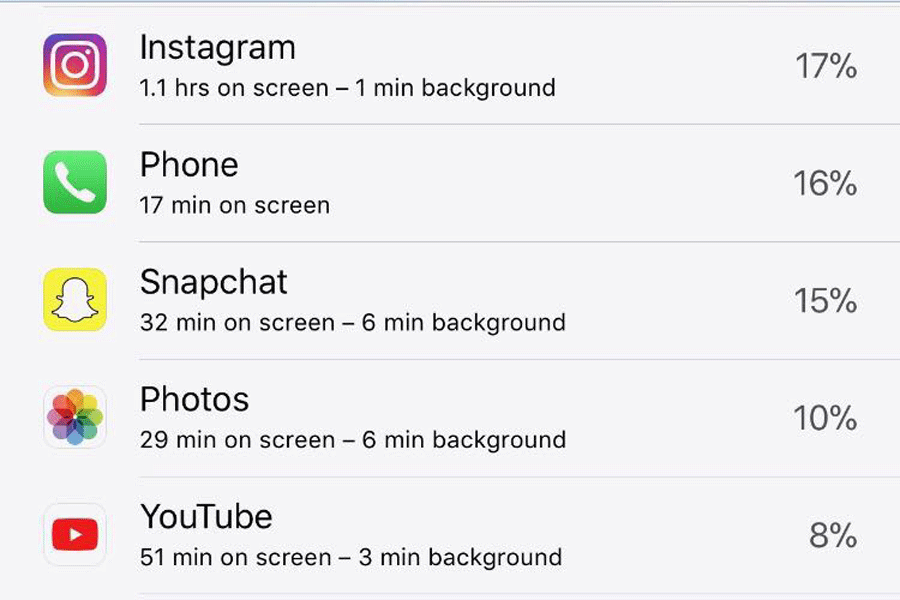Maxed Out
September 21, 2017
We depend on it to write homework down, to find answers, to check emails, and to communicate with the people sitting next to us or those in other countries. And while it might sound like a Chromebook, it is actually our cell phone. Add to all those productive uses all of our recreation, and we are destined to be on our phones constantly. But what does that mean, constantly?
A month ago, I had been on my phone so much that I had to go into my settings to turn on ‘low battery saving mode’ just to squeeze out another hour of usage. In that menu, I found that my phone actually tracks how much of the battery gets used for different apps. I was surprised by my results. I always thought I was self-aware. I knew I I used my phone a lot. But I figured I used it most for emails, texting, and things to help with school. I looked at my battery usage, it turned out that 23% of my battery was spent on playing games and 35% on social media. Some apps, of course, eat up more battery, but the concept of battery power to track usage was new to me, and I had never really thought about usage in terms of total hours. I began writing this piece curious how it was for other people. Would they be surprised by their cell phone usage, as reported by battery results?
Francisco Temblador, after going through tracking his hours, joked, “I now realize how much I slack at work and get paid for it still.” His battery usage was pretty high with his most used apps all being social media. Janet Garcia, whom I also asked to review results, defended the numbers: ”I think cell phone use has become a part of everyone’s daily routine; it’s almost like forgetting a piece of clothing-like your shoes or shirt- it’s almost impossible to run out of your house without your cell phone.” She also speaks about her usage results, saying “I wasn’t really surprised by my cell phone usage. I’m aware that I spend a lot of time on my phone. I’m a homebody, so I spend a lot of time alone and at home and a lot of that alone time goes towards my phone. I spend a lot of time watching Youtube videos and netflix.”
I reviewed the battery screens of nine people other than myself, and the usage varied widely. There were outliers found:people who spent no more than two hours on their phone to people whom I saw spent over 15 hours on them. The average from all people who spent time on their phones was 5.2 hours. And for almost all, their battery was shown to be used on social media and games the most, with the top three apps being snapchat (30%), facebook (12.6%) and music (9.2%).
Granted, my data is nowhere near scientific because I just chatted up a couple handfuls of people. But most gave the defense that we’re using cell phones to connect and speak to people whom we normally don’t see. All of this connection, we claim, ultimately lets us make plans for real human interaction. And as schools are becoming more tech-connected, teens are spending even more time, taking pictures of notes, using phones for programs like Desmos, and even playing school games, like Kahoot.
The pace of technology progress teaches us that we shouldn’t expect any of this stopping. Our batteries will continue to be maxed out. But with that being said, it’s important that we work to realize what we are using our phones for and how long we spend on them. If you’re ready to face the truth, do this: unlock your IPhone, go into settings, and find the battery report.








